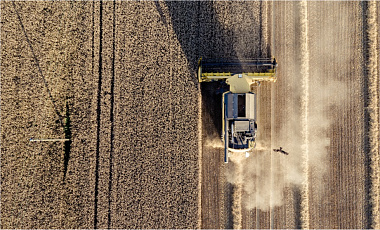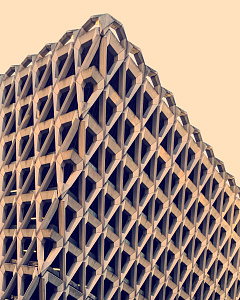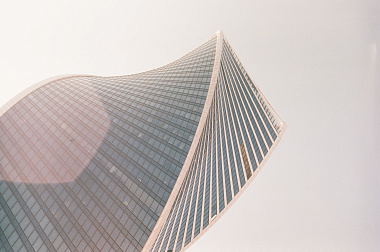Development of the legislation on common property before the Law
Legislation on common property was developing as follows prior to the introduction of the Law:- In 2004, the Russian Housing Code was adopted. It introduced the concept of “common property” of a multi-dwelling residential house (“MDR House”), regulated the status of such property and established the rules on its possession, use and disposal. In brief, common property of an MDR House includes (i) premises and other elements of the relevant MDR House (such as the roof, facades, staircases and technical floors) designated for servicing more than one premises in such MDR House; and (ii) the land plot underlying the MDR House. By operation of law, common property of an MDR House belongs to all premises owners in such house on the right of joint shared ownership. Decisions on the possession, use and disposal of such property must be taken jointly by the premises owners in the MDR House.
- For a long time, there were no laws governing common property in non-residential buildings. This gap was filled by Resolution of the Plenum of the Higher Arbitrazh Court of the Russian Federation
No. 64 “On Certain Matters when Considering Disputes on the Rights of Premises Owners to Common Property of a Building” dated 23 July 2009 (“Resolution No. 64”).
In Resolution No. 64, the Higher Arbitrazh Court extends the rules on common property of an MDR House to common property of a non-residential building (except for land plots). The status of land plots was further clarified by the Supreme Court of the Russian Federation. The court stated that the premises owners in a non-residential building should acquire the same rights to the land plot under such building which the developer of the building or its other previous owner used to have (ie, ownership or lease).
- On 21 December 2021, the Russian Civil Code was supplemented with chapter 17.1 “Ownership and Other Proprietary Rights to Buildings, Structures, Construction in Progress, Premises and Parking Lots” (Federal Law
No. 430-FZ). Article 287.5 of this chapter applies to common property in any building (including residential and non-residential) and establishes general rules for such property, while the provisions of the Russian Housing Code on the common property of an MDR House (existing from 2004 as described above) became special rules. New article 287.5 generally repeats the principles described in ResolutionNo. 64 .
In addition, according to new article 287.6 of the Russian Civil Code the owners of premises in a building located on a third-party land plot should use such land plot on the basis of an agreement with the owner of this land plot. At the same time the premises owners have certain statutory rights to the relevant land plots. For example, if a land plot is state or municipally owned, the premises owners are entitled to claim the acquisition of this land plot into ownership or lease.
- On 30 December 2021, Federal Law
No. 476-FZ was adopted, which introduced amendments to the Federal Law on Participation in Shared Construction (No. 214-FZ dated 30 December 2014) and, among other things, regulates common property in low-rise residential complexes (ie, primarily cottage villages). The status of such common property is generally equal to the status of common property in real estate objects. Namely, such common property belongs to individual owners in the complexes on the right of joint shared ownership. However, certain specific provisions apply to such common property. For example, the purchasers of residential buildings under an agreement on shared construction participation acquire the title to common property on the basis of an agreement with the developer of these buildings and not by virtue of law.
In addition, there is Federal LawNo. 217-FZ of 29 July 2017 regulating gardening, which, among other things, regulates the common property of the territories of gardening and horticulture. This law also repeats the principle of joint shared ownership of common property, but establishes special rules for its maintenance and use.
Key provisions of the Law
The Law introduces comprehensive regulation of common property in any real estate and establishes universal principles applicable to any common property. All other normative acts on these matter (already existing or which might be introduced in future) become special rules. Such normative acts currently include the Housing Code of the Russian Federation, chapter 17.1 of the Russian Civil Code, the Federal Law on Participation in Shared Construction, and the law on gardening.Therefore, it may be concluded that the legislation on common property has been developed from specific regulation of common property in particular real estate objects (ie, in MDR Houses) to the overall regulation of any common property, including common property in any real estate objects and common property on territories of cottage villages and similar territories.
The concept of “common property”
According to the Law, immovable property owners may have common property when:
- a number of real estate objects are located within a certain territory and are physically or technologically connected (primarily cottage villages); or
- premises in a building belong to several owners (ie, in a MDR House or a non-residential building).
The composition of common property may be determined by law. Such composition is already determined by the relevant laws mentioned above in section 1 for the common property of MDR Houses, non-residential buildings, cottage villages and territories of gardening or horticulture.
Title to common property
The Law establishes the following rules regarding the title to any common property:
- the common property belongs to the owners of the real estate objects on the right of joint shared ownership;
- the share in the right of joint ownership of each individual owner is determined proportionally to the share of the total area of a real estate object belonging to such owner. Such share, in turn, is determined proportionally to the share of the total area of the individual real estate object in the total area of all individual real estate objects in the relevant MDR House / building / village;
- the share in the joint ownership to the common property is inseparable from the ownership of the real estate object. Such share may not be disposed separately from the real estate object. The owner of the real estate object is not entitled to perform other actions entailing the transfer of such share separately from the real estate object. Transactions made in violation of these rules are void.
Matters related to the title, use and disposal of common property shall be decided by individual owners through voting at general meetings of owners. The number of votes belonging to each individual owner is proportional to his/her share in the joint ownership of the common property.
As a rule, a decision on the possession, use and disposal of common property shall be made by a majority vote of all owners of the relevant real estate objects, unless otherwise provided by the Russian Civil Code or other laws. In particular, article 259.3 of the Russian Civil Code establishes the following exceptions:
- two thirds of the votes are sufficient to transfer the common property for possession or use of third parties;
- the alienation of common property to third parties requires a unanimous decision of all owners. Such alienation is only possible when it does not contradict Russian law.
Unless otherwise agreed by a unanimous decision of the real estate objects owners, each owner shall bear the costs for the maintenance of the common property proportionally to his/her share in the join ownership to such common property. Among other things, each owner shall participate in the payment of taxes, fees and other payments related to the common property proportionally to such share.
If, as a result of actions or inaction of any individual owner, additional expenses for the maintenance of the common property occur, such owner must compensate them.
***
The Law enters into force on 1 October 2023.





